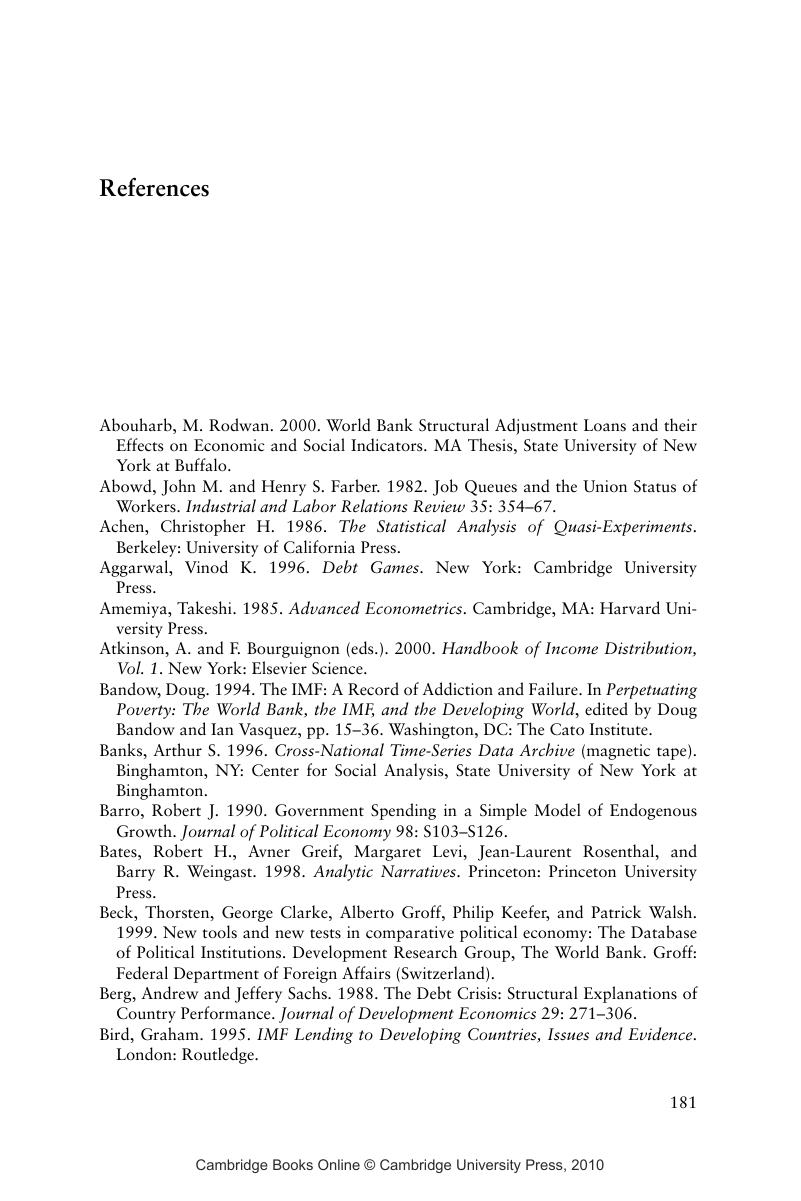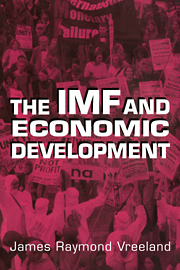Book contents
- Frontmatter
- Contents
- List of Tables and Figures
- Acknowledgements
- 1 Introduction
- 2 Analytically Significant Cases
- 3 An Analytical Approach to the Politics of IMF Agreements
- 4 Testing the Selection Story
- 5 The Effect of IMF Programs on Economic Growth
- 6 Distributional Consequences of IMF Programs
- 7 Conclusions
- Appendix 1 Variables Used in This Study
- Appendix 2 Country-Years in Samples
- References
- Index
- References
References
Published online by Cambridge University Press: 08 January 2010
- Frontmatter
- Contents
- List of Tables and Figures
- Acknowledgements
- 1 Introduction
- 2 Analytically Significant Cases
- 3 An Analytical Approach to the Politics of IMF Agreements
- 4 Testing the Selection Story
- 5 The Effect of IMF Programs on Economic Growth
- 6 Distributional Consequences of IMF Programs
- 7 Conclusions
- Appendix 1 Variables Used in This Study
- Appendix 2 Country-Years in Samples
- References
- Index
- References
Summary

- Type
- Chapter
- Information
- The IMF and Economic Development , pp. 181 - 192Publisher: Cambridge University PressPrint publication year: 2003



